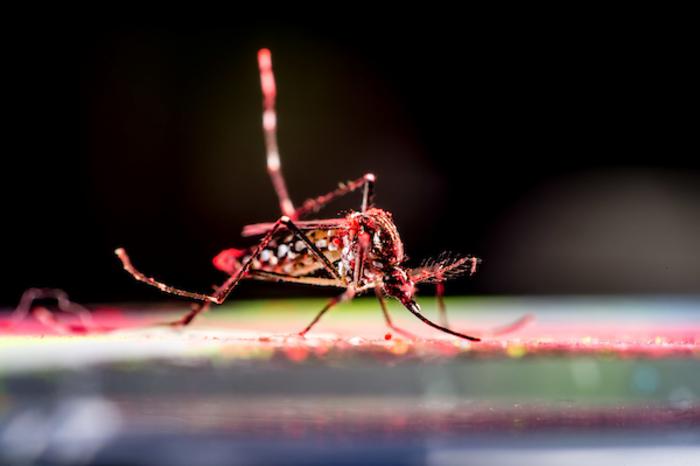The fight against dengue fever has a new weapon: a mosquito infected with the bacteria Wolbachia, which prevents the spread of the virus. These mosquitoes have now been deployed in several trials demonstrating their potential in preventing disease transmission.

Credit: University of Notre Dame
The fight against dengue fever has a new weapon: a mosquito infected with the bacteria Wolbachia, which prevents the spread of the virus. These mosquitoes have now been deployed in several trials demonstrating their potential in preventing disease transmission.
Now, researchers at the University of Notre Dame have conducted an analysis of the World Mosquito Program’s randomized control trial of Wolbachia-infected mosquitoes in Indonesia, looking at how excluding transmission dynamics impacted the original interpretation of the trial’s results.
“Randomized controlled trials are the gold standard for evaluating the efficacy of any medical or public health intervention. That is very difficult for vector interventions against dengue because incidence of the disease can be somewhat unpredictable and sporadic, requiring very large-scale trials,” said Alex Perkins, associate professor of biological sciences at Notre Dame and senior author on the study.
The study published in BMJ Global Health used mathematical models to analyze dengue virus transmission during the Indonesia trial. They explored three biases, or sources of potential error, that the trial is subject to: human movement, mosquito movement and the combined transmission dynamics between human and mosquito movement.
Out of all the biases, the researchers explain that the most problematic to control for is transmission coupling. While bias due to human and mosquito movement can be mitigated through trial design and other statistical methods, transmission coupling requires mathematical modeling that is not traditionally part of clinical trial analysis.
The study found that the amount of bias introduced in any given trial is likely to be greater when the population receiving the intervention in the trial is larger. In the case of the Indonesia trial, nearly half the population was treated with Wolbachia mosquitoes. “That makes the bias that we uncovered due to transmission coupling especially important for this trial,” Perkins said.
Even though the Wolbachia trial in Indonesia showed an impressive reduction of dengue infections by 77 percent, Perkins’ team predicts that those results are likely underestimated. Consistent with their prediction, a recent trial in Colombia demonstrated a drop in dengue fever incidence by 94 to 97 percent, using an interrupted time series approach.
“Although we did not pinpoint a precise revised estimate of the Indonesia trial, we showed that a true efficacy approaching those observed in the interrupted time series analyses from Colombia is theoretically possible,” Perkins said. “I was pleasantly surprised to see these updated time series results, which make the Wolbachia approach continue to look encouraging.”
Perkins also noted that the reductions in dengue fever cases may not carry on indefinitely and that events such as births, deaths and immigration will increase susceptibility to the disease, affecting case numbers in the long-term.
As for future vector-borne disease research, Perkins explained that it’s important to incorporate transmission dynamic modelling in the designing and the interpreting of trials to ensure researchers understand the true impact of any interventions.
“Our findings can apply to the efficacy of any vector-control method that has the potential to contaminate its own study populations, such as gene drive mosquitoes or ivermectin as interventions against malaria,” Perkins said.
Contact: Brandi Wampler, associate director of media relations, 574-631-2632, [email protected]
Journal
BMJ Global Health
DOI
10.1136/bmjgh-2023-012169
Method of Research
Computational simulation/modeling
Article Title
Does ignoring transmission dynamics lead to underestimation of the impact of interventions against mosquito-borne disease?




